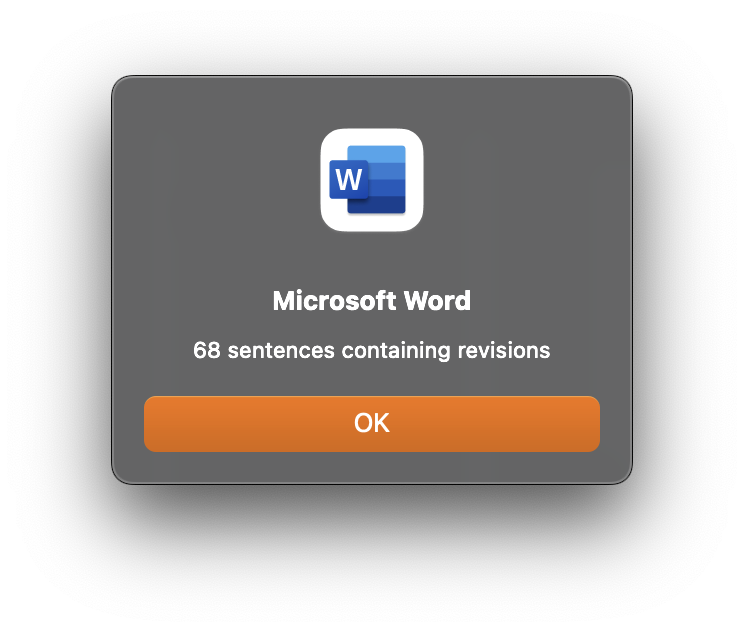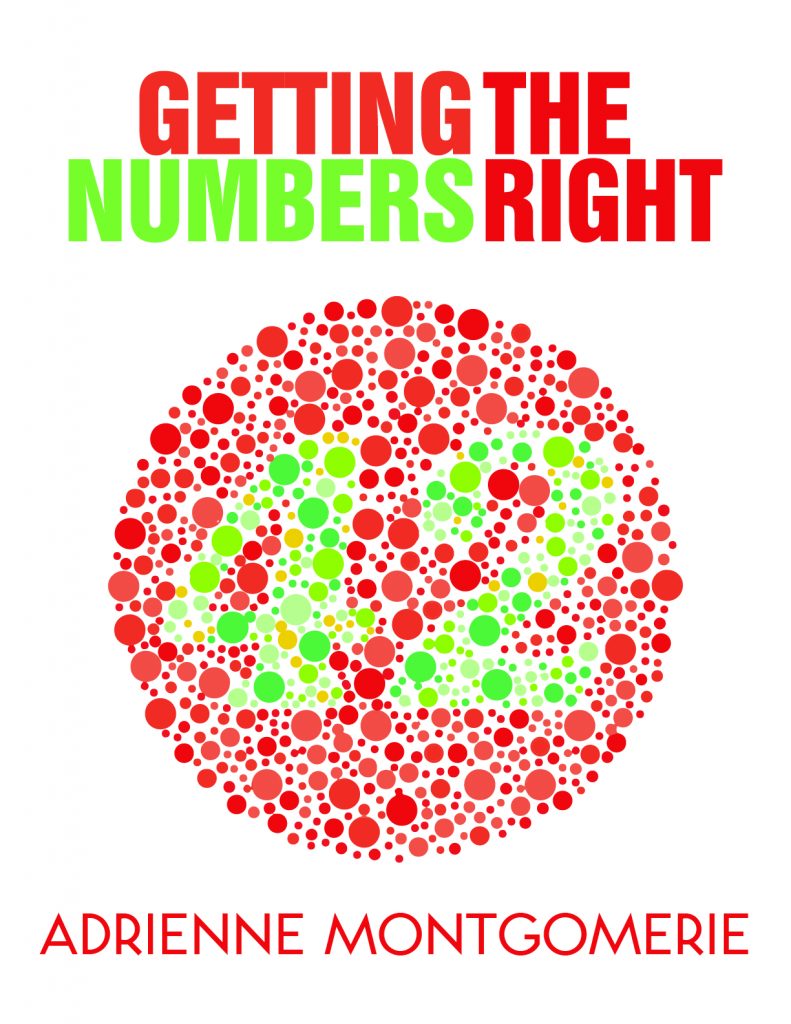In a recent proofread, authors told me that they made “a few additional changes” as they uploaded content to the ebook system.
“OK,” I thought, “there’s always a few lingering typos, and looking at it in a new way (as happens when uploading) can reveal them.”
But as I was trying to compare the manuscript to the ebook to ensure all of it was there, I noticed that nearly every transition on the first few pages had changed, several punctuation marks in the ebook shouldn’t have been there, hyphens appeared where em dashes should be, and some whole paragraphs were missing. This made checking for content gaps impossible, and it made me wonder how much was actually changed after the copyedit. Here’s how I figured it out.
Exporting the ebook to MS Word let me run some checks, but I had to dig further to get a meaningful layer of detail I could use to revise my work estimate and explain to the client why this “proofread” would cost significantly more than anticipated.
The Steps
Here’s the process and result, along with 3 extremely helpful macros:

3 Track changes
3.8 Compare docs
IV Macros
10 Advanced Find
6 Word Counts
- Export ebook to an epub file (or any format that you can convert to MS Word).
- Convert file to MS Word docx file.
- Compare docs (using Word’s Compare button on the Review ribbon) to track the changes between the “live” published book and the “dead” manuscript that was copyedited.
- Use a macro to count how many words those changes included:
- TrackChanges_WordCount
- Optional: Record the number of tracked additions and deletions from MS Word’s “Revision Summary” on the Revisions pane.
- Use a different macro to highlight all sentences containing tracked changes.
- HighlightCountRevisedSentences (see end of post)
- Then use Advanced Find > Format > Highlight > “Highlight all items found in:” to select, then copy those highlighted sentences.
- Paste into a new document to get a word count, since all of those words need to be checked, not just the changed words.
- Use yet another macro to count the total number of sentences in the manuscript and divide this by #7. (Because Words “document stats” report was saying the 137 page document had 113 sentences, which was clearly wrong).
The Results
In my document, this process found:
- 814 Additions (4280 words)
- 670 Deletions (3163 words)
- 2224 Sentences total (48,714 words)
- 690 Sentences changed (containing 11,190 words) — or about 1/4 of the total
And that doesn’t even take into account how these changes affect content elsewhere!

HighlightCountRevisedSentences Macro
This macro highlights sentences that contain tracked changes if you want it to. Otherwise it just counts them. Kevin of Kevin Walker Editing and Design answered my cry for help with this macro he had asked Bing AI to write for him not much earlier. It worked for me right away.
Note that I added a line listing codes for all of the various colours of highlighting available, and that Kevin has a note in there saying to “note out” (put a single quote mark at the start of the line) the highlight line if you don’t want material highlighted, only counted. To make your macro, paste the code below in Word’s VBA. Part IV of the book explains how.
Sub HighlightCountRevisedSentences()
Dim snt As Range
Dim i As Integer
i = 0
For Each snt In ActiveDocument.Sentences
If snt.Revisions.Count > 0 Then
i = i + 1
' shading codes: wdBlue wdBrightGreen wdTeal
wdDarkBlue wdDarkRed wdDarkYellow wdGray25 wdGray50 wdGreen wdPink wdRed wdTurquoise wdViolet wdWhite wdYellow
' Delete/comment out the next line if you don't want shading
snt.HighlightColorIndex = wdGray25
End If
Next snt
MsgBox i & " sentences containing revisions"
End Sub

The © polo bear [sic] eating the right angel was drawn by the author. The “find the differences” images of sushi comes via Pixabay.
Got a gnarly Word problem? Submit your problem and we’ll try to answer it in the Q&A thread.




Learn with us! Join a course today.
© This blog and all materials in it are copyright Adrienne Montgomerie on the date of publication. All rights reserved. No portion may be stored or distributed without express written permission. Asking is easy!
